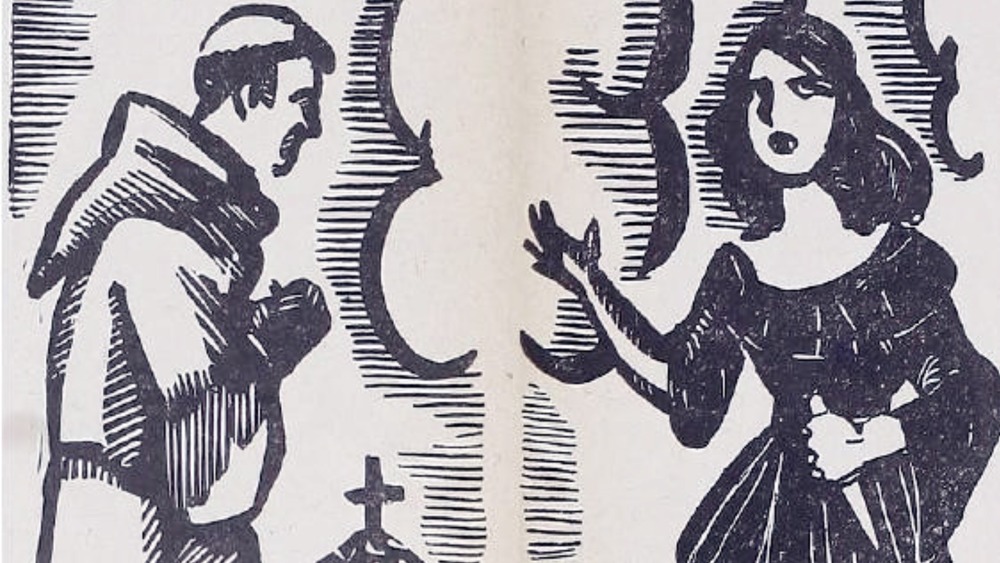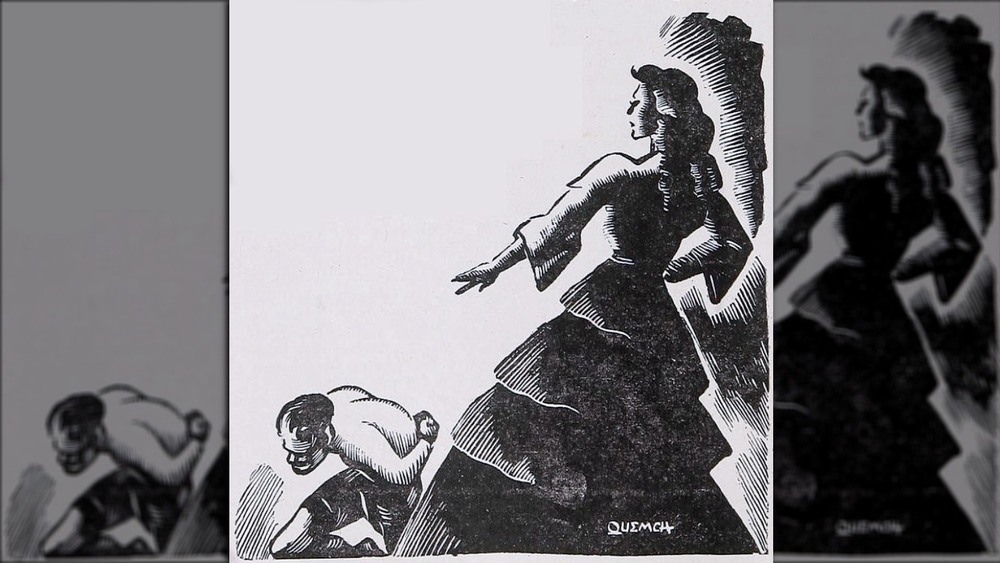The True Story Of La Quintrala, Chile's Aristocratic Serial Killer
Although the term "serial killer" wasn't coined until the late 20th century, serial killers themselves have existed for much longer. The country of Chile remembers to this day the legacy of a brutal serial killer from the 1600s who ruthlessly murdered her slaves, lovers, and even her own father. Her story has been mythologized and come to represent the cruelty of the colonial era and a rather sexist trope of an abusive woman.
Born to rich members of the Chilean nobility in 1604, Catalina de los Ríos y Lísperguer's abusive treatment of her slaves and servants earned her the nickname La Quintrala, after a local plant with which she would beat them, the flowers of which were as red as her fiery hair. The Chilean news website Emol called her "one of the cruelest and most powerful women of her time." While she was able to evade prosecution due to her status for many years, toward the end of her life, she was arrested and charged with the murders of at least 40 people. The real count of her killings, however, was most surely higher than that. She died in 1665 while the judicial process was still underway.
La Quintrala's legacy has been much mythologized in Chilean culture
Dr. Alicia Muñoz, who studied the life and legacy of Catalina de los Ríos y Lísperguer for her doctoral dissertation at Cornell University, wrote that La Quintrala's story, full of violence, witchcraft, and mystery, has been highly mythologized in Chilean culture, coming to serve as a stand-in stereotype for femininity and the country's violent colonial past. She wrote that "La Quintrala has been positioned as a perverse mother to the nation, constantly evoked in the Chilean imagination only to be overcome/forgotten."
Muñoz followed the various representations of La Quintrala through the popular imagination of Chile. Throughout the country's history, her story has been used to form the basis of several forms of entertainment, from telenovelas (soap operas) to comic books to feminist novels. To this day, the 17th-century serial killer still plays a significant role in the cultural identity of Chile.

